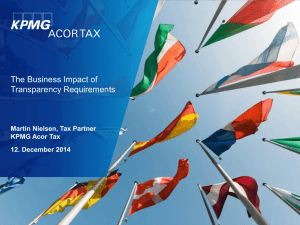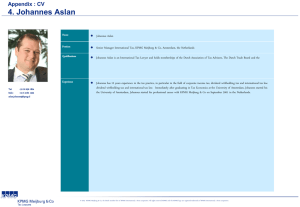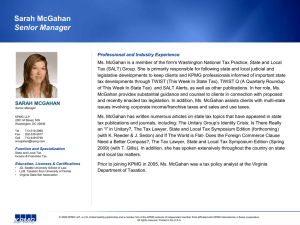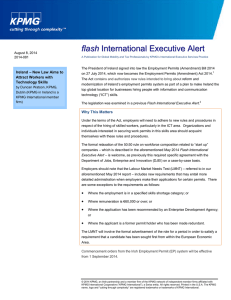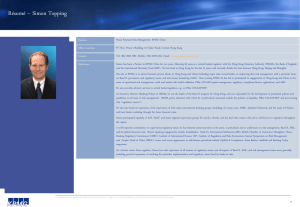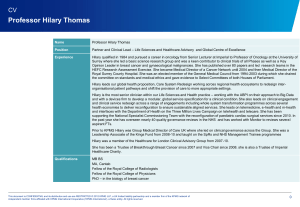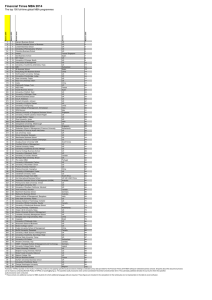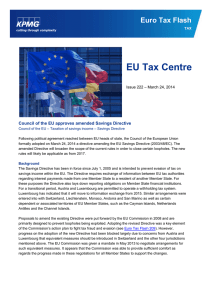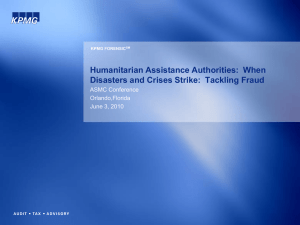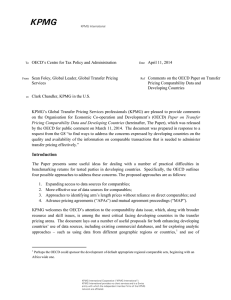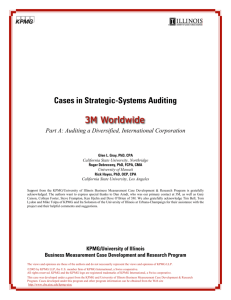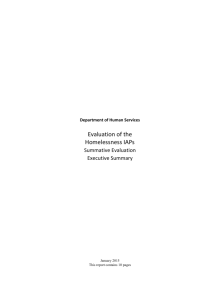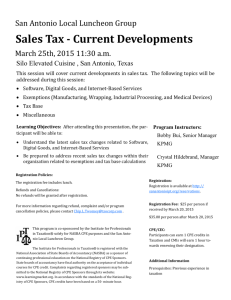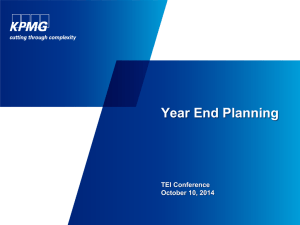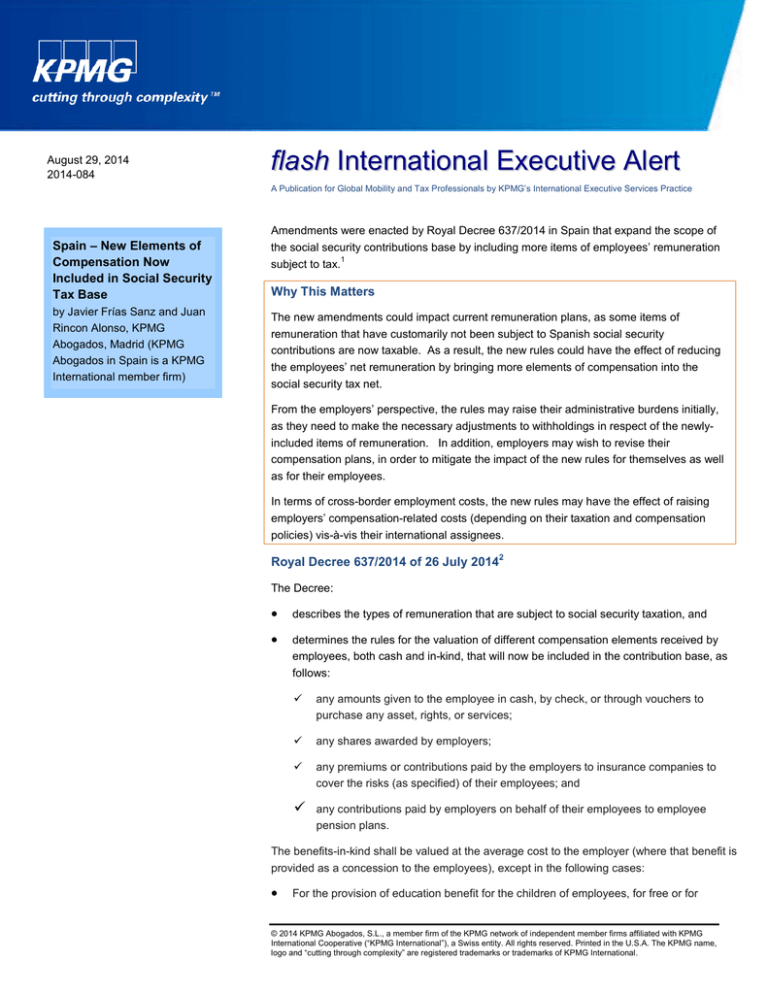
August 29, 2014
2014-084
flash International Executive Alert
A Publication for Global Mobility and Tax Professionals by KPMG’s International Executive Services Practice
Spain – New Elements of
Compensation Now
Included in Social Security
Tax Base
by Javier Frías Sanz and Juan
Rincon Alonso, KPMG
Abogados, Madrid (KPMG
Abogados in Spain is a KPMG
International member firm)
Amendments were enacted by Royal Decree 637/2014 in Spain that expand the scope of
the social security contributions base by including more items of employees’ remuneration
1
subject to tax.
Why This Matters
The new amendments could impact current remuneration plans, as some items of
remuneration that have customarily not been subject to Spanish social security
contributions are now taxable. As a result, the new rules could have the effect of reducing
the employees’ net remuneration by bringing more elements of compensation into the
social security tax net.
From the employers’ perspective, the rules may raise their administrative burdens initially,
as they need to make the necessary adjustments to withholdings in respect of the newlyincluded items of remuneration. In addition, employers may wish to revise their
compensation plans, in order to mitigate the impact of the new rules for themselves as well
as for their employees.
In terms of cross-border employment costs, the new rules may have the effect of raising
employers’ compensation-related costs (depending on their taxation and compensation
policies) vis-à-vis their international assignees.
Royal Decree 637/2014 of 26 July 2014
2
The Decree:
•
•
describes the types of remuneration that are subject to social security taxation, and
determines the rules for the valuation of different compensation elements received by
employees, both cash and in-kind, that will now be included in the contribution base, as
follows:
any amounts given to the employee in cash, by check, or through vouchers to
purchase any asset, rights, or services;
any shares awarded by employers;
any premiums or contributions paid by the employers to insurance companies to
cover the risks (as specified) of their employees; and
any contributions paid by employers on behalf of their employees to employee
pension plans.
The benefits-in-kind shall be valued at the average cost to the employer (where that benefit is
provided as a concession to the employees), except in the following cases:
•
For the provision of education benefit for the children of employees, for free or for
© 2014 KPMG Abogados, S.L., a member firm of the KPMG network of independent member firms affiliated with KPMG
International Cooperative (“KPMG International”), a Swiss entity. All rights reserved. Printed in the U.S.A. The KPMG name,
logo and “cutting through complexity” are registered trademarks or trademarks of KPMG International.
August 29, 2014
2014-084
amounts under the normal market price, and for the provision of child-care offered by the company,
the valuation is determined according to the marginal costs linked to the “centers” providing such
services.
•
•
For the (1) provision of housing allowances or reimbursements, whether that housing is offered by
3
the employer on the employer’s premises or “off site” and (2) use or delivery of company-provided
vehicles, the valuation is made according to the terms provided for the afore-mentioned benefits in
Spain’s tax code.
Loans granted to workers at below-market interest rates shall be valued at the difference between
the interest paid and the legal interest rate in force during the year.
Other items are excluded from the contributions base (see second paragraph of Article 23, according to
the provisions of Article 109.2 of the Consolidated Text of the General Law on Social Security).
Deadlines
The new rules stipulate a deadline of September 30, 2014, for charging and collecting the social
contributions in respect of the expanded base.
KPMG Note
Social security costs are typically among the main costs for international assignments. Please note,
under the new rules, contributions to the system must be made irrespective of the nationality of the
employees. However, it is important to analyze each particular situation in light of applicable
international social security agreements and EU regulations.
Footnotes:
1 For more information (in Spanish) on Real Decreto 637/2014, de 25 de julio, por el que se modifica el
artículo 23 del Reglamento general sobre cotización y liquidación de otros derechos de la Seguridad
Social, aprobado por el Real Decreto 2064/1995, de 22 de diciembre see the “Novedades” Web page of
the Ministerio de Empleo y Seguridad Social at: http://www.segsocial.es/Internet_1/Novedades/index.htm .
Or go the Web site for the Boletín Oficial del Estado de sabado, 26 de Julio de 2014, p. 59692 at:
http://www.boe.es/boe/dias/2014/07/26/pdfs/BOE-A-2014-7969.pdf .
2 The amendments entered into force on the day following the Decree’s publication, and modify article
23 of the General Regulations on contributions and settlement of other rights granted by Social
Security, and adapt the changes that were introduced in Article 109 of the General Law on Social
Security.
3 The term “delivery” means the vehicle is bought by the employer, granted to the employee, and the
employee becomes the owner of the vehicle (and this is deemed a benefit-in-kind). The delivery is
valued as the full price paid by the employer together with taxes and insurances.
The information contained in this newsletter was submitted by the KPMG International member firm in
Spain. The information contained herein is of a general nature and based on authorities that are
subject to change. Applicability of the information to specific situations should be determined through
consultation with your tax adviser.
Flash International Executive Alert is an IES publication of KPMG LLP’s Washington National Tax
practice. To view this publication or recent prior issues online, please click here. To learn more about
our IES practice, please visit us on the Internet: click here or go to http://www.kpmg.com .
© 2014 KPMG Abogados, S.L., a member firm of the KPMG network of independent member firms affiliated with KPMG
International Cooperative (“KPMG International”), a Swiss entity. All rights reserved. Printed in the U.S.A. The KPMG name,
logo and “cutting through complexity” are registered trademarks or trademarks of KPMG International.
2



